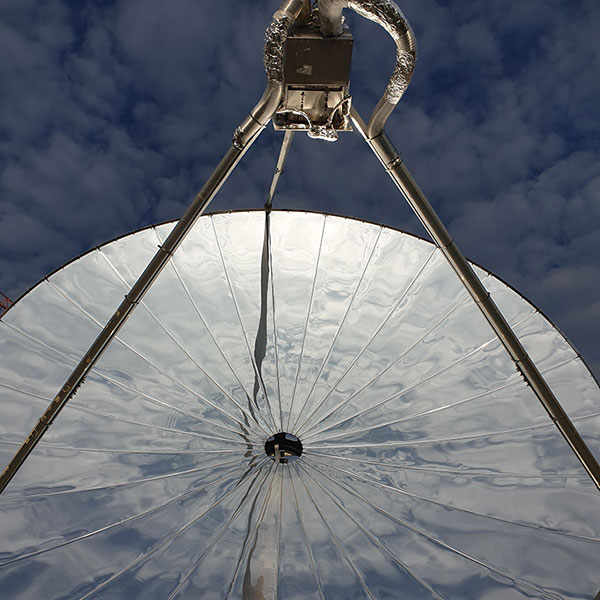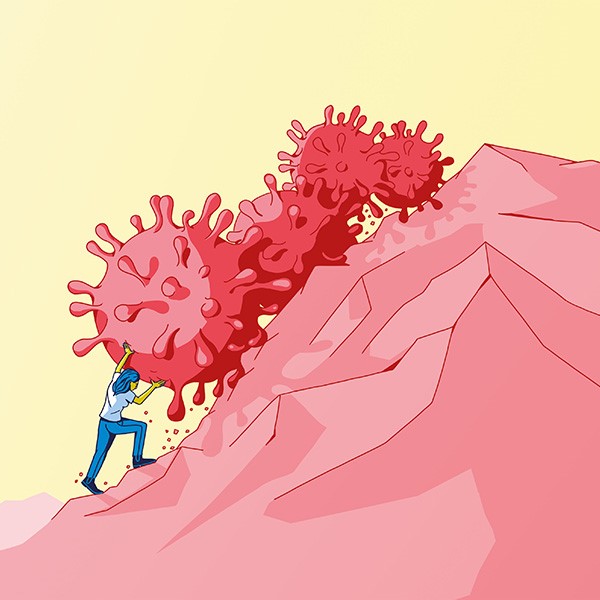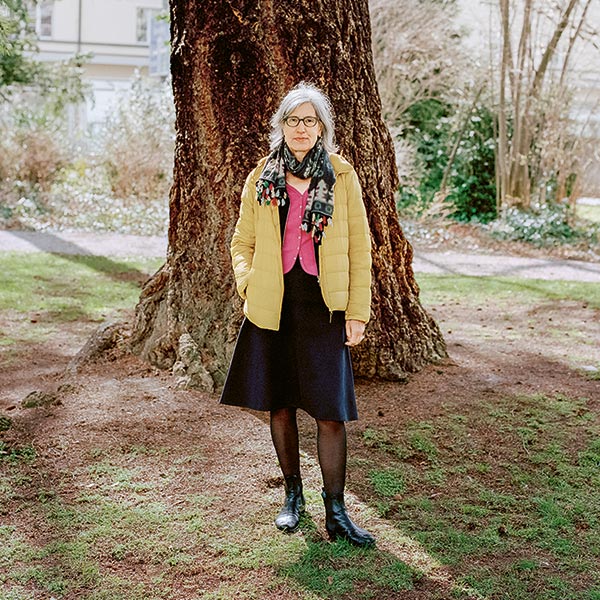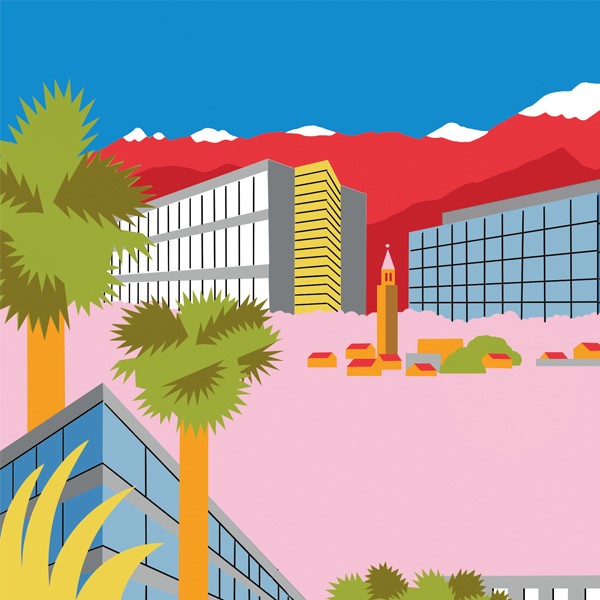Science Olympiad
Ready, steady, think!
Switzerland has been holding national Science Olympiads since 2004. But even before then Swiss high school students had already been travelling to such events on the international scene for 17 years. They continue to attend the international Olympiads and have repeatedly won medals there. To mark the 20th anniversary of the first Swiss edition, five students tell us what participating brought them.
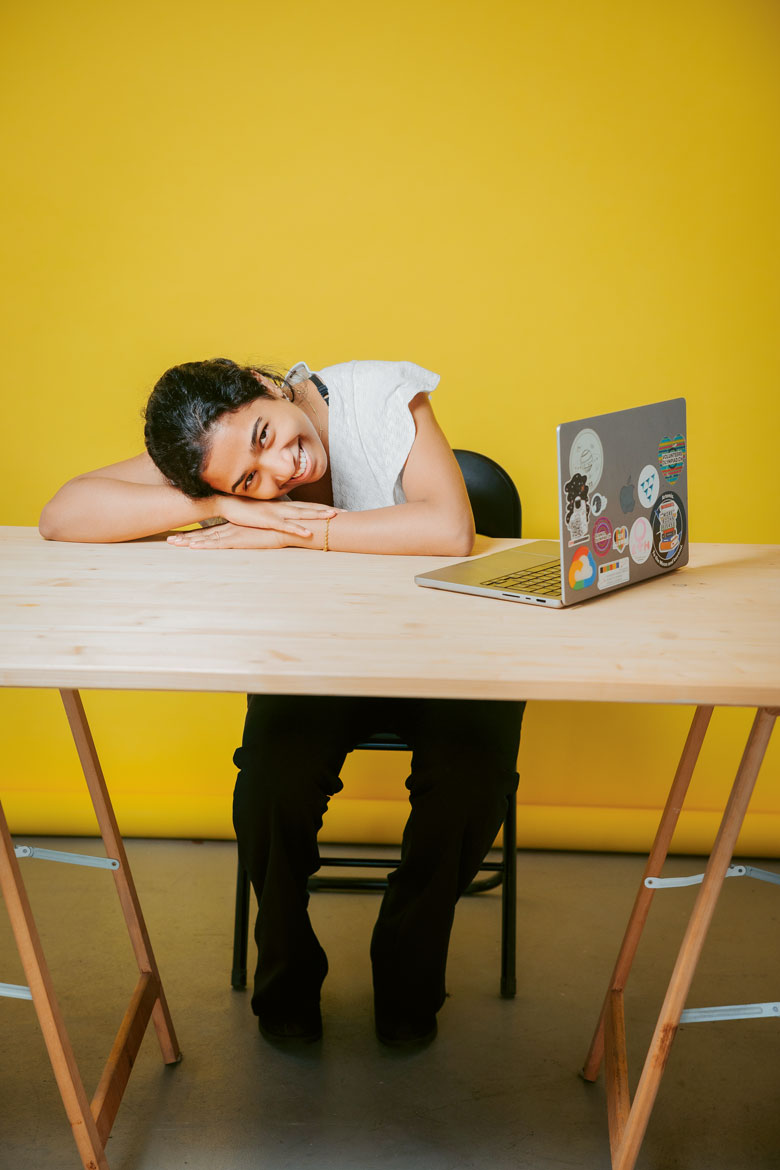
Srishti Manivel | Photo: Fabian Hugo
“The competition gave me a huge boost to try things out”
“The Olympiad completely turned my life around. Preparing for it meant I was able to get a solid basis in business, economics and finance – and it made me realise that I needed to acquire more technical knowledge. Before the Olympiad I’d been determined to study business administration, but now I’m studying computer science. The competition consisted of an exam, a simulation game and a business case. We were given exactly 24 hours to solve the last of these. It was announced at three o’clock in the morning. I set my alarm clock so that I wouldn’t miss it. But then I fell asleep again. I had to recharge my batteries, and I knew from having taken part in the International Olympiad in 2022 that we’d be working until the last second before the deadline. We in the Swiss delegation were able to score points because we relied on storytelling. But I was nervous right to the end. The medal now hangs in my parents’ house, and it’s always a great conversation piece whenever we have guests over.
“I used to dream of setting up my own NGO. But then I realised that I can achieve just as much through social entrepreneurship. My cantonal high school ran a free course in entrepreneurship, and I created a start-up company for indoor farming. So far, we’ve been able to sell over 750 herb gardens. It was this course that led me to take part in the Olympiad.
“Preparing for it last year was intense. I spent the summer in the library instead of outdoors in the swimming pool. I had my end-of-school exams just before the summer, and after it I started my studies. But it was worth it. The people who are my best friends today are the ones I got to know at the Olympiad, and I still talk to some of them every day. The competition gave me a big boost to try things out. It was there that I realised I like speaking in front of people. Doing the pitch was great fun, though that surprised me. It also showed me how much I can achieve when I invest time and passion in something. And an Olympiad like that after your final exams is almost like a free holiday”.
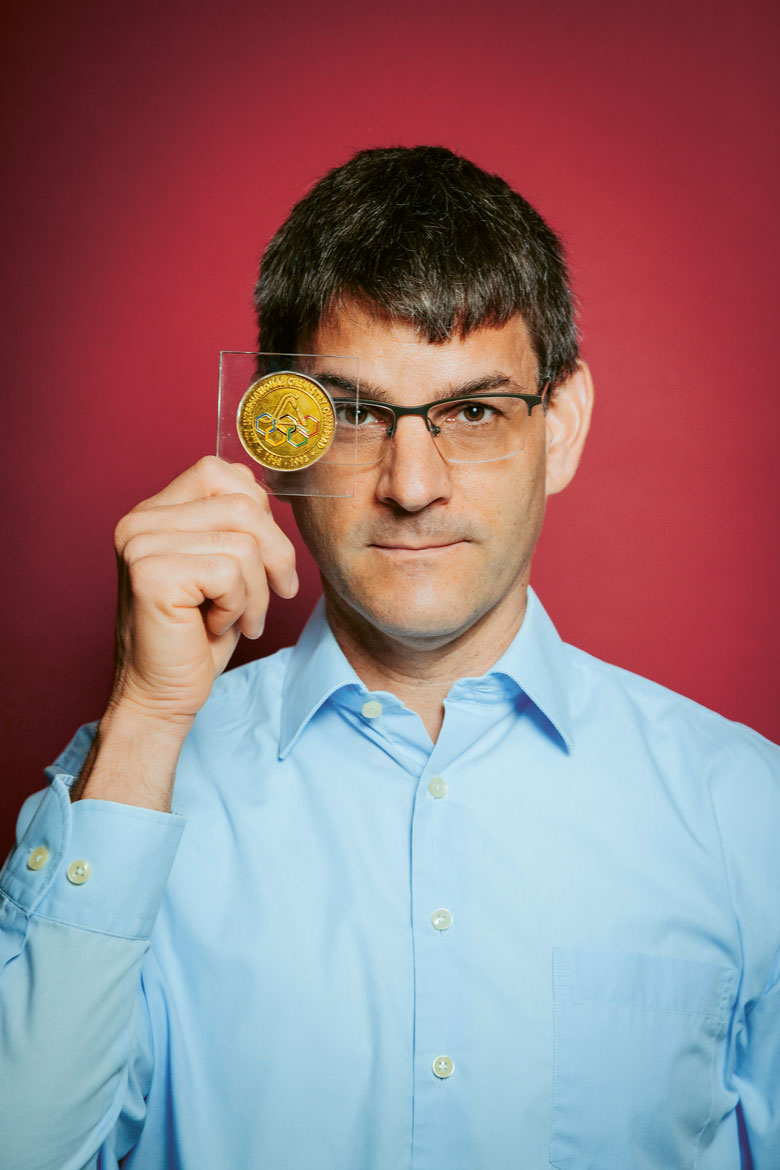
Wendelin Stark | Photo: Fabian Hugo
“The most valuable thing I got from participating was friendship”
“I had a really dedicated chemistry teacher in high school who encouraged me to take part in an Olympiad in Lausanne. But to do that, I had to improve my French. It was an unexpected side effect from which I’m still benefiting today. I was in a class specialising in Latin, so my enthusiasm for chemistry made me stand out. The most valuable outcome I got from participating in the Olympiads was the friendships I made with like-minded people from all over the world. And of course, as a young person, it was also interesting to get to know other countries. Beijing was incredible. We were given CHF 100 in the local currency. Being Swiss, we reckoned it wouldn’t get us very far. But we were completely wrong: we were able to buy everything we needed in the time we were there – just under two weeks – and we even came home with lots of souvenirs. That impressed me a lot back then. My main memory of Oslo is of making ice cream in a glacier lake in the middle of the night.
“Preparing for the international Olympiads was always pretty intense. I spent months conducting experiments in my spare time. Of course I was proud of my medals. Succeeding at the international level is very different from doing it in your own country. In most other countries, success at the Olympiad has a concrete impact on your career. In Germany, for example, the winners are automatically accepted into the German Academic Scholarship Foundation. In the USA, they have a better chance of getting scholarships. But in Switzerland, there’s a certain reticence: sporting achievements are supported and celebrated, whereas intellectual excellence is viewed with a degree of suspicion – despite it being a core element of our prosperity. I think that’s a shame. But I strongly advise young people to take part. They should stick with what interests them, and then they’ll discover that young people all over the world are also pursuing the same goals”.
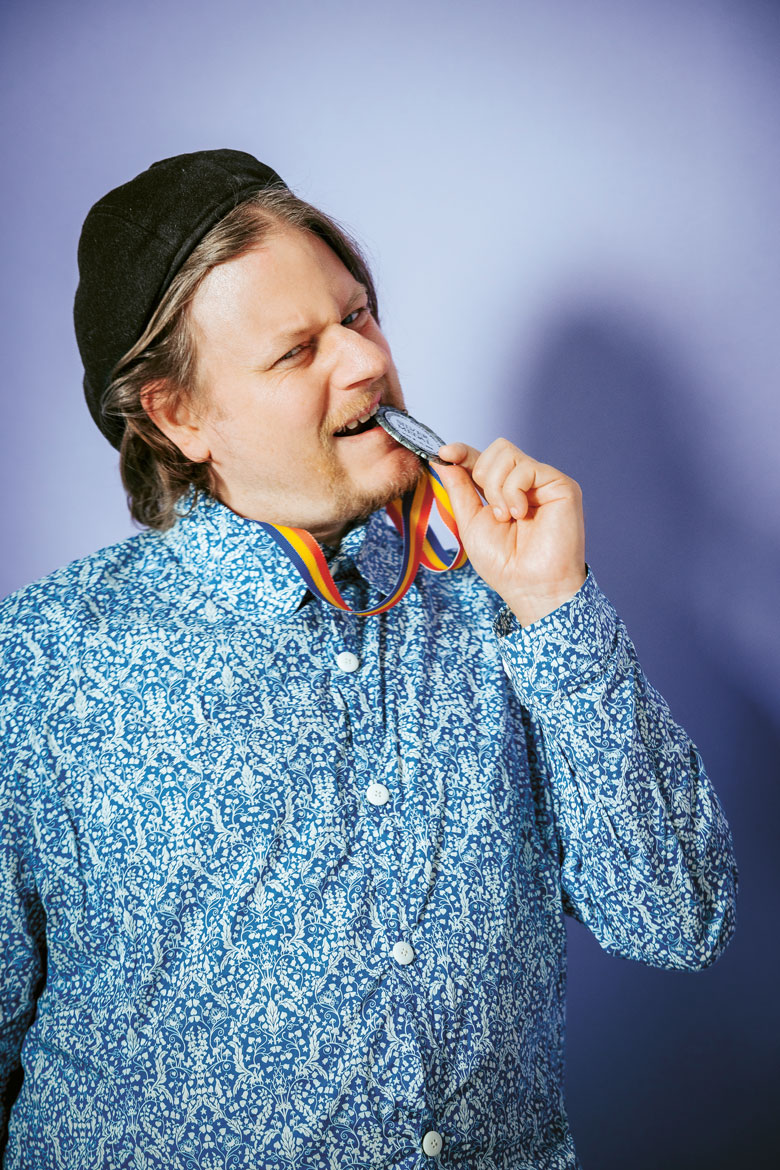
Conrad Krausche | Photo: Fabian Hugo
“Without the Olympiad, I probably wouldn’t have studied philosophy”
“When I was at high school, I was the only one in my class who found science in itself exciting. All the others had more or less specific careers in mind. They wanted to be doctors, lawyers, or to go into business. My philosophy teacher encouraged me to take part in the Science Olympiads. It was cool to get to know like-minded people from different countries. I won the silver medal with an essay on Thomas Hobbes. Jonas Pfister was on the assessment panel. Many know of him through his introduction to philosophy, and he later became my professor when I began my philosophy studies. He later told me how the committee was almost dissolved on one occasion because the members from Northern Europe couldn’t agree on the assessment criteria with the members from Southern and Eastern Europe. The former valued ideas, while the latter placed a greater emphasis on factual knowledge. In the end, however, they had managed to agree.
“It was also in Romania that I became a fan of progressive metal music. It happened like this. There was a very handsome Finnish guy among the participants who was adored and pursued by all the women at the Olympiad. When it got too much for him, he turned to me and said: ‘Come on, Conrad, let’s get out of here’. So we went off into town together. He was wearing a t-shirt with a band on it, and I asked him about it. He told me about the band and then played me some music by them. I thought it was great, and later even went to a concert of theirs. Of course I was proud of my medal, but that was more of a personal thing. In terms of my career, it probably didn’t do much for me. But I’d still recommend everyone to take part. I think it was a great experience, and it got me interested in writing essays. Without the Olympiad, I probably wouldn’t have studied philosophy, and I certainly wouldn’t have set about writing a doctoral thesis. Regrettably, financial reasons prevented me from completing it. But the joy of writing has stayed with me to this day”.
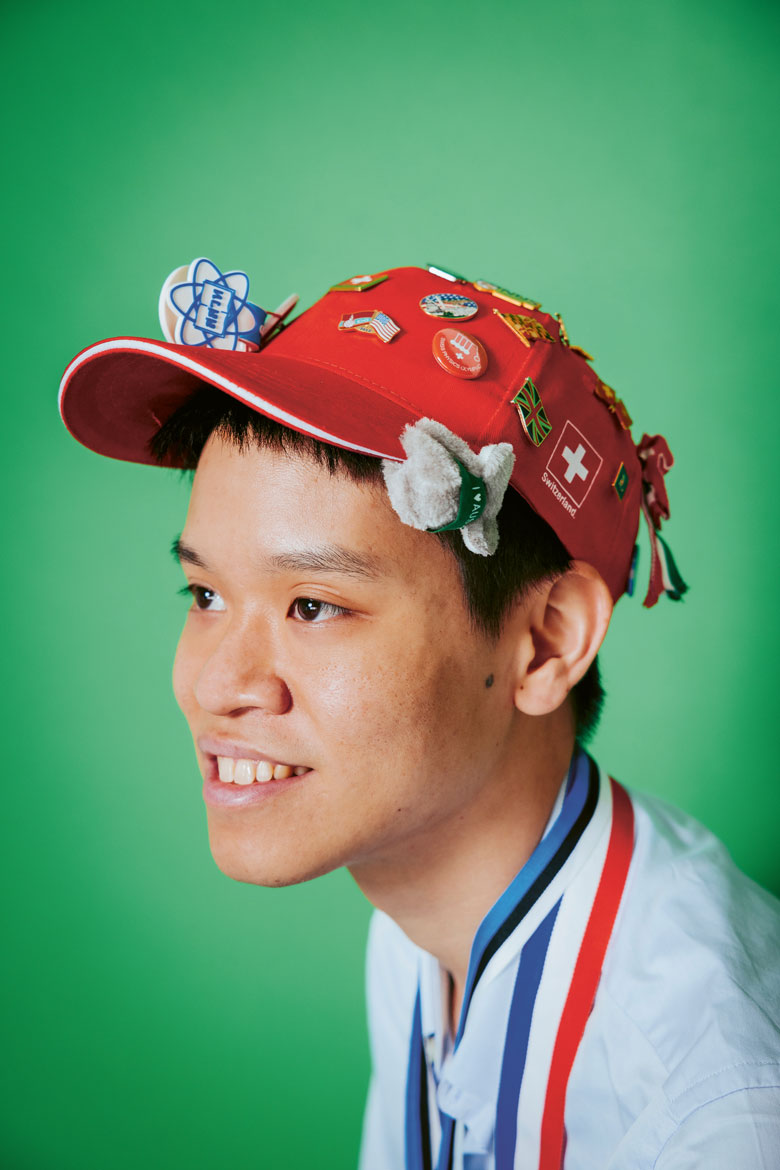
Lê Thanh Phong | Photo: Fabian Hugo
“It helped me gain perspective ahead of my EPFL exams”
“The greatest influence of the physics and chemistry Olympiads in terms of my career is probably what it’s done for my level of German. I was motivated to really learn through contact with German participants, and still today, it’s through my involvement in the Olympiad associations that I keep it going. At first, I was in charge of organising the exams and prep camps which were held at EPFL. Now I have made way for the next generation, but continue to lend a helping hand during the events, writing exam questions or giving physics classes. There are volunteers from all over Switzerland, all sharing the same enthusiasm, it’s really cool.
“I’d known for a long time that I wanted to study physics, nothing changed from that point of view. One day I came across a poster on the door at school and decided to take part, first just in physics, then the following year in physics and chemistry. The interest was already there. I just learned part of the subject a little bit earlier. It helped me gain perspective ahead of my EPFL exams: the questions weren’t as complicated as at the Olympiads!
“But the contest isn’t what’s important. When I think back to my experience, I remember most of all the venue and the visits. There was the mediaeval castle in Rakvere, in Estonia, where we practised archery and shot-putting during the physics final in Tallinn and Tartu. Then we visited the NASA Goddard Space Flight Center during the chemistry finals in Washington D.C. and in Maryland, USA. When the international finals were held in Switzerland, we also showcased memorable visits: CERN for physics in 2016 and an excursion to Lucerne and Rigi Kulm for chemistry in 2023. If I could give one piece of advice to potential participants, it would be to go easy on yourself and make the most of it!”
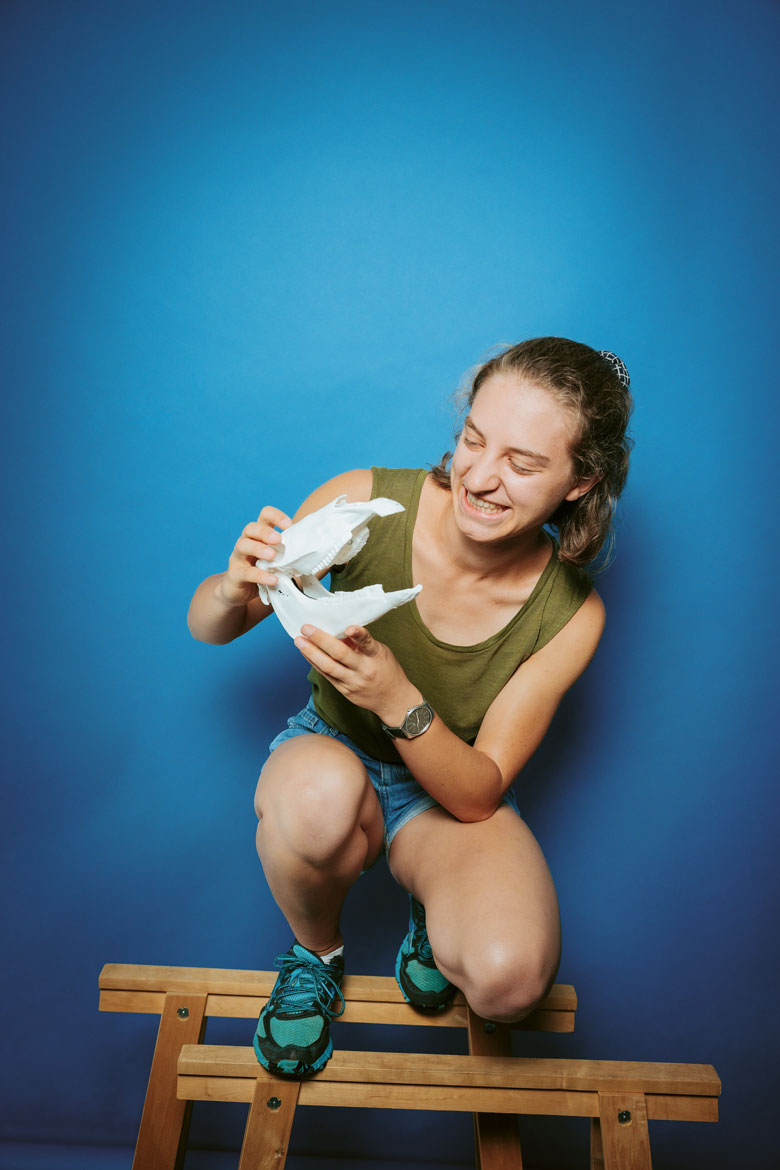
Mathilde Rolle | Photo: Fabian Hugo
“It was all good, we went for fun and to meet people”
“When I think back to the contest, it was all pretty amazing, not just the exams. I remember playing Uno with people from all over, Armenia and Yerevan, the capital, where the final took place, the visit to the ancient monastery in the mountains one evening with a fantastic landscape and atmosphere. Then we crossed Turkey when coming back by train with the Swiss delegation. It was unforgettable.
“I was one of those who set out on the adventure by chance. I’ve gone horse-riding since I was six years old, and the love of it led me to want to become a vet and only made me even more fascinated about biology. My high school teacher was building it up by saying that the final meant a week in the laboratories at the University of Bern. The idea of being able to play with pipettes and do real science was an instant incentive. I took part every year for the last three years of high school. The third time was a charm: I got through the first two rounds and made it to the labs in Bern. There were 20 of us, during the Easter holiday, answering theory questions, dissecting, cutting plants, following biochemical protocols . . . I loved it, but it was very demanding, so I was really surprised to make up one of the four who qualified for the international final. From that point on, it was all good, we went for fun and to meet people.
“The Olympiads had a massive positive impact on my career path, particularly in terms of my veterinary medicine studies. The 430-page document sent out for the preparation week ahead of the second round covered a large part of my first-year syllabus! And I joined the Swiss association as a volunteer, meaning I made friends across the country. I took over at the head of the French-speaking region, where the contest isn’t so well known and seen more as a competition than anything, which isn’t really the aim. I want to offer other youngsters the chance to go through this experience!”

